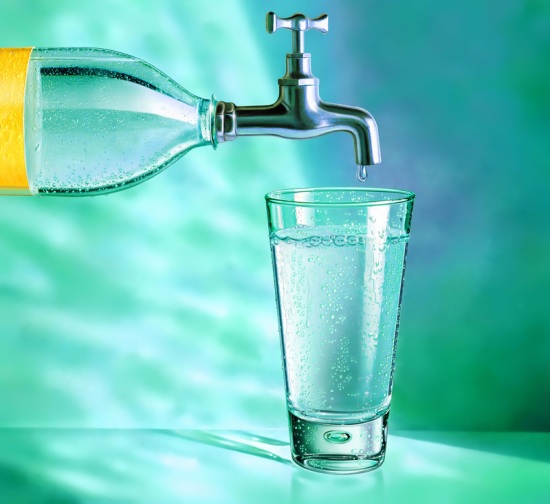Commercial property supermarkets Asda and Tesco are known rivals, with both enjoying a high level of popularity amongst the British public. Although both operating in the same market, the two are markedly different – Tesco, with its regular “Every Little Helps” promotions is a firm favourite with bargain hunters, whilst “Asda Price” focuses on keeping the cost on a range of products consistently low.

However, this week one product emerged to give the two a common bond, at least in the eyes of the national press.
The supermarket chains have been accused of “immorality” after selling bottled water without declaring the origins of the contents on the label. Whilst this may not seem like a great crime, the fact that it has proven to be nothing but filtered tap water has certainly raised a few eyebrows.
What’s more, the bargain bottles are sold at 17 pence for 2 litres – seemingly a rock bottom price and good value for money. However, this is a 2,500 per cent mark up on the price home owners pay for tap water. As this is essentially what the supermarkets are selling alongside natural mineral and spring water, it seems that customers who do not check the labels are simply being ripped off.
As a result, experts such as researchers from Waterwise are now calling for a change in the law to ensure consumers are not shelling out their cash for a product that comes out of the taps in their homes. They believe that, by making supermarkets adhere to honest labelling regulations, customers of the commercial property chains will at least know the origins of their bottled water and be able to make decisions armed with all of the information.
Waterwise is an independent body which advises the Government on the efficient use of water. Director Jacob Tompkins believes that the supermarkets involved are deliberately misleading customers and only a change in the law will protect consumers from this type of profiteering.
He says; “They are taking tap water that is perfectly good to drink and has already been filtered and checked many times.
“They are then filtering it again for no good reason, sticking it in a plastic bottle, transporting it hundreds of miles across the country and leaving it on shelves to get hot and cold for weeks on end.
“When they are selling natural mineral water or spring water filtered through rocks in the north of Scotland, supermarkets are very quick to spell out every detail on the bottle – however, strangely they cannot find the space to list these products as filtered tap water.
“The public should be told on the label exactly what they are buying.”
While both stores claim that their filtration processes make it unfair to describe the bottled water as simple tap water is unfair, Mr Tompkins is insistent that selling the product back to the public at a 2,500 per cent mark-up is “just ridiculous”. He pointed out that the consumers have already paid for the tap water, and infrastructure that produces it, as part of their household bills.
According to the Drinking Water Inspectorate, 99.96 per cent of all drinking water in the UK meets the high standards for quality and safety, making the supermarkets’ final filtration process unnecessary. However, Mr Tompkins claims that it may even be harmful to remove the traces of chlorine and impurities that the supermarkets say the final stage of filtration is there for.
He continued; “The chlorine stops bacteria growing, so by taking this out, supermarkets are making the water less safe.”
Do you buy bottled water from supermarkets rather than simply filling a glass from the tap in your home? Why do you think bottled water has become so popular, especially considering the UK’s high standards for testing drinking water from the tap?